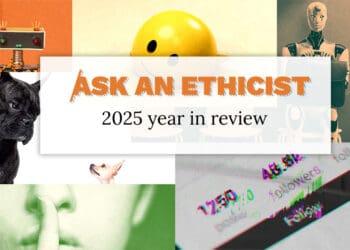Ethics and compliance professionals are essential to the success of modern organizations, helping to weave accountability and ethical decision-making into the fabric of the workforce. But there are many ways to integrate this important expertise into your organization. Asha Palmer of Skillsoft introduces the “Four Bs” framework: building, buying, borrowing and bots.
Rapid advancements in AI are reshaping the workplace, bringing both opportunities and challenges. For organizations, one of the most pressing needs is to fill ethics and compliance gaps, helping address emerging risks, guide decision-making and empower accountability in the age of AI and automation.
These professionals are not just regulatory gatekeepers; they are key architects of an ethical organizational culture. Hiring and integrating the right compliance talent requires a structured approach, one that aligns with the modern realities of workforce planning.
Enter the “Four Bs” framework, a strategy for enabling a future-ready workforce through building, buying, borrowing and bots. Compliance leaders, alongside other department heads like HR, can use the “Four Bs” to be successful and ensure ethics and compliance into every level of the organization.
Build: Developing compliance talent from within
Internal talent development is one of the most effective strategies for preparing a workforce to meet evolving compliance and ethical standards. A key approach is to grow internal expertise by building a pipeline of compliance talent. This can happen by identifying high-potential employees and providing them with comprehensive training and ongoing upskilling in ethics and regulatory risks, topics and approaches. For example, supporting attendance at targeted programs on topics like new and emerging privacy laws, unbiased decision-making and emerging AI ethics can help upskill employees and prepare them for future challenges.
Another important aspect is embedding values through training. By aligning training initiatives with organizational values, companies can ensure that ethical principles are integrated into daily operations so that you are actively skilling every employee on risk mitigation and management. For instance, employees trained to identify AI bias or safeguard sensitive data can apply ethical discipline in their work, strengthening compliance their skills and enhancing the organization’s reputation for trust.
Buy: Recruiting top-tier ethics and compliance professionals
When “building” talent internally cannot meet immediate or advanced needs, strategic hiring becomes essential. One key approach is to prioritize skills over credentials. Instead of focusing solely on resumes, look for practical abilities like critical thinking, adaptability and proficiency in compliance tools. To better assess these skills, use targeted evaluations and realistic case studies during interviews to gauge a candidate’s problem-solving abilities in real-world scenarios.
Another important step is to onboard new hires with ethical intentions. Onboarding should go beyond technical training and emphasize ethical principles and alignment with the organization’s mission. For example, new employees should be educated on how the organization interprets significant regulations or ensures responsible use of AI within its operations.
Are You Getting the Most Bang for the Buck at Compliance Conferences?
Think like a journalist — you might even get published
Read moreDetailsBorrow: Leveraging internal and external expertise in compliance
Short-term or specialized needs may require engaging both internal cross-functional experts and external consultants or contractors for ethics and compliance roles. Even temporary compliance hires should go through a thorough onboarding process to seamlessly integrate into the company. Likewise, internal experts from departments like legal, risk, IT or communications should be oriented on compliance goals and frameworks when temporarily supporting these initiatives. Providing them with a robust orientation about the organization’s ethical values and regulations ensures their contributions align with operational goals and the company’s overarching mission.
Collaboration between internal contributors and short-term external experts should be encouraged to foster knowledge sharing. This approach leaves a lasting impact by equipping existing staff with advanced insights and skills in compliance best practices, strengthening the team’s overall capabilities.
For example, inviting a legal team member to co-lead a compliance risk assessment or hiring a contractor to conduct a compliance risk assessment or develop an AI ethics framework can address urgent needs while also laying the groundwork for future internal processes. This flexible approach not only solves immediate challenges but also contributes to building a more resilient compliance infrastructure.
Bot: Deploying AI tools for recruitment & support
AI tools are revolutionizing how organizations onboard and develop their compliance workforce. By automating routine tasks, bots free up human talent to focus on strategic initiatives. However, it’s essential to ensure their deployment aligns with ethical standards and regulatory requirements.
One major benefit of AI is its ability to create personalized learning experiences. For instance, AI can tailor onboarding and training programs for new hires in compliance roles. Automated modules can be adjusted to match an employee’s background, focusing on key policies and skills specific to their responsibilities.
AI also enhances compliance support by automating repetitive tasks, such as tracking regulatory updates or conducting privacy audits. This not only increases efficiency but also ensures consistent adherence to evolving guidelines, making compliance processes more reliable and accurate.
Beyond automation, AI provides actionable insights that support better decision-making. By analyzing regulatory shifts and industry trends, compliance leaders gain the data they need to make informed decisions about workforce policies, risk management and resource allocation.
Risk mitigation is another critical area where AI excels. It can enhance oversight by monitoring metrics like data protection compliance or hiring biases. Through automated alerts and analytics, organizations can quickly detect potential violations, reduce human error and maintain ethical standards.




 Asha Palmer is Skillsoft’s senior vice president of compliance solutions. Throughout her career, Asha has developed, enhanced and optimized effective ethics and compliance programs for hundreds of companies worldwide. As a former assistant U.S. attorney and litigator, Asha is extremely passionate about making training & engagement stick and be meaningfully embedded in and with business and its leaders.
Asha Palmer is Skillsoft’s senior vice president of compliance solutions. Throughout her career, Asha has developed, enhanced and optimized effective ethics and compliance programs for hundreds of companies worldwide. As a former assistant U.S. attorney and litigator, Asha is extremely passionate about making training & engagement stick and be meaningfully embedded in and with business and its leaders. 






